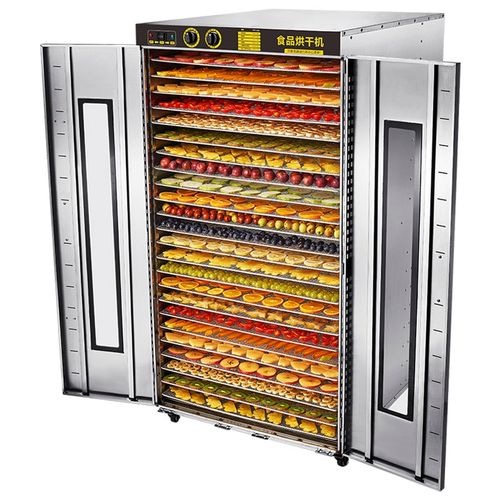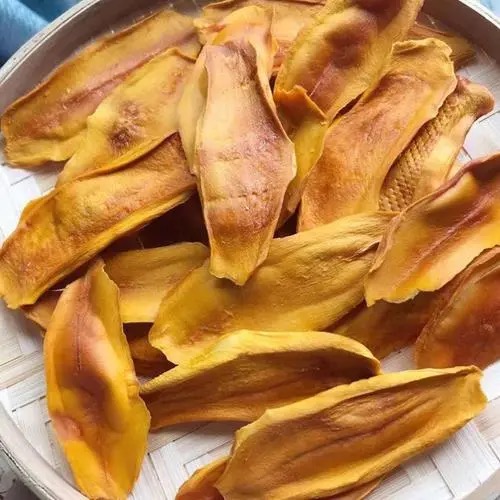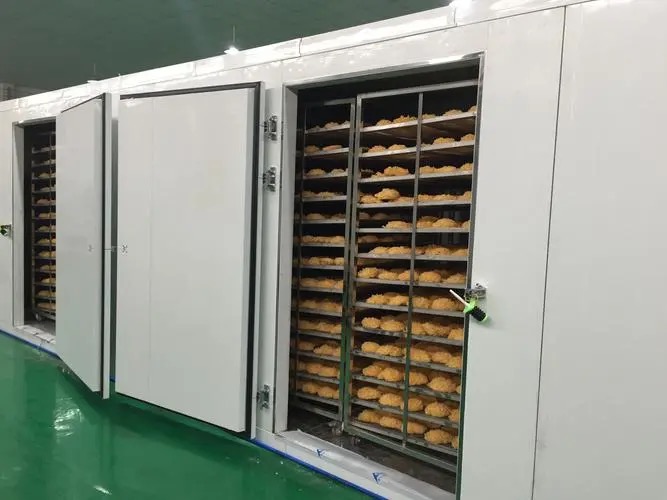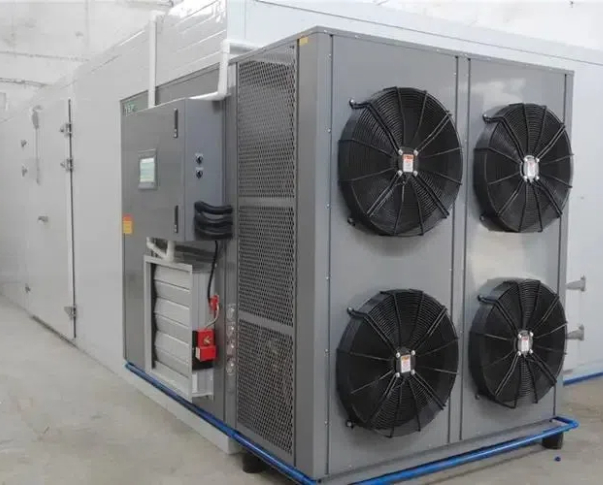
Content Menu
● Introduction
● Understanding Heat Pump Dryers
● How Heat Pump Dryers Work
● Advantages of Heat Pump Dryers for Food Processing
● Applications in the Food Industry
● Choosing the Right Heat Pump Dryer
● Maintenance of Heat Pump Dryers
● Innovations in Heat Pump Drying Technology
● Economic Benefits of Heat Pump Dryers
● Conclusion
● Frequently Asked Questions
>> 1. What is the main advantage of using heat pump dryers for food?
>> 2. Can heat pump dryers be used for all types of food?
>> 3. How do heat pump dryers compare to traditional dryers?
>> 4. What maintenance is required for heat pump dryers?
>> 5. Are heat pump dryers environmentally friendly?
Introduction
In the world of food preservation, drying is one of the oldest and most effective methods. With the advancement of technology, heat pump dryers have emerged as a revolutionary solution for food drying. This article will explore the intricacies of heat pump dryers, their benefits, and their applications in the food industry, particularly for manufacturers and wholesalers.

Understanding Heat Pump Dryers
Heat pump dryers utilize a unique drying process that involves the circulation of warm air. Unlike traditional dryers that expel hot air, heat pump dryers recycle the air within the system. This not only enhances energy efficiency but also ensures that the drying process is gentle on the food, preserving its nutritional value and flavor.
How Heat Pump Dryers Work
Heat pump dryers operate on the principle of thermodynamics. They extract moisture from food by using a heat exchanger to transfer heat from the air to the food product. The process involves several key components:
1. Evaporator: Absorbs heat from the environment and evaporates refrigerant.
2. Compressor: Increases the pressure and temperature of the refrigerant.
3. Condenser: Releases heat to the air, allowing moisture to condense and be removed.
4. Expansion Valve: Regulates the flow of refrigerant back to the evaporator.
This closed-loop system allows for efficient moisture removal while maintaining a consistent temperature, making it ideal for drying various food products.
Advantages of Heat Pump Dryers for Food Processing
1. Energy Efficiency: Heat pump dryers consume significantly less energy compared to conventional drying methods. This is particularly beneficial for large-scale food processing operations where energy costs can be substantial.
2. Preservation of Nutritional Value: The gentle drying process helps retain the vitamins and minerals in food, making it a healthier option for consumers.
3. Versatility: Heat pump dryers can be used for a wide range of food products, including fruits, vegetables, herbs, and meats. This versatility makes them an excellent choice for food manufacturers.
4. Reduced Environmental Impact: By using less energy and minimizing waste, heat pump dryers contribute to more sustainable food processing practices.
5. Consistent Quality: The controlled drying environment ensures that food products are dried uniformly, reducing the risk of spoilage and enhancing product quality.

Applications in the Food Industry
Heat pump dryers are increasingly being adopted in various sectors of the food industry. Here are some common applications:
1. Fruit Drying: Heat pump dryers are ideal for drying fruits like apples, bananas, and berries. The gentle drying process helps maintain their natural sweetness and color.
2. Vegetable Drying: Vegetables such as carrots, peas, and bell peppers can be effectively dried using heat pump technology, making them suitable for long-term storage and use in soups and stews.
3. Herb Drying: Culinary herbs like basil, thyme, and oregano retain their essential oils and flavors when dried with heat pump dryers, making them perfect for packaging and sale.
4. Meat Drying: For manufacturers of jerky and other dried meat products, heat pump dryers provide a reliable method for moisture removal while ensuring food safety.
Choosing the Right Heat Pump Dryer
When selecting a heat pump dryer for food processing, consider the following factors:
1. Capacity: Determine the volume of food you need to dry and choose a dryer that can handle your production needs.
2. Temperature Control: Look for models with adjustable temperature settings to accommodate different types of food.
3. Energy Efficiency Ratings: Opt for dryers with high energy efficiency ratings to minimize operational costs.
4. Ease of Use: Choose a model that is user-friendly and easy to maintain.
5. Manufacturer Support: Ensure that the manufacturer provides adequate support and service for the equipment.
Maintenance of Heat Pump Dryers
Proper maintenance is crucial for the longevity and efficiency of heat pump dryers. Here are some tips:
1. Regular Cleaning: Keep the filters and heat exchangers clean to ensure optimal airflow and efficiency.
2. Check Seals: Inspect door seals and gaskets regularly to prevent air leaks.
3. Monitor Performance: Keep an eye on the dryer’s performance and address any issues promptly to avoid costly repairs.
4. Professional Servicing: Schedule regular professional maintenance to keep the dryer in top condition.
Innovations in Heat Pump Drying Technology
The field of heat pump drying technology is continuously evolving. Recent innovations include:
1. Smart Technology Integration: Many modern heat pump dryers now come equipped with smart technology that allows users to monitor and control the drying process remotely via mobile apps. This feature enhances convenience and efficiency.
2. Advanced Sensors: Newer models are equipped with advanced sensors that can detect moisture levels in real-time, adjusting the drying parameters automatically to ensure optimal results.
3. Modular Designs: Manufacturers are increasingly offering modular heat pump dryers that can be customized based on the specific needs of the food processing operation. This flexibility allows businesses to scale their drying capacity as needed.
4. Improved Insulation: Enhanced insulation materials are being used in the construction of heat pump dryers, which helps to minimize energy loss and improve overall efficiency.
Economic Benefits of Heat Pump Dryers
Investing in heat pump dryers can lead to significant economic benefits for food manufacturers:
1. Lower Operating Costs: The energy efficiency of heat pump dryers translates to lower utility bills, which can significantly reduce overall operating costs.
2. Increased Production Capacity: With faster drying times and the ability to handle larger volumes, heat pump dryers can help manufacturers increase their production capacity, leading to higher revenue.
3. Market Competitiveness: By producing high-quality dried food products that retain their nutritional value, manufacturers can differentiate themselves in the market, attracting more customers and potentially commanding higher prices.
Conclusion
Heat pump dryers represent a significant advancement in food drying technology. Their energy efficiency, ability to preserve nutritional value, and versatility make them an excellent choice for food manufacturers and wholesalers. As the demand for high-quality dried food products continues to grow, investing in heat pump dryer technology can provide a competitive edge in the market.

Frequently Asked Questions
1. What is the main advantage of using heat pump dryers for food?
The main advantage is their energy efficiency and ability to preserve the nutritional value of food during the drying process.
2. Can heat pump dryers be used for all types of food?
Yes, heat pump dryers are versatile and can be used for fruits, vegetables, herbs, and meats.
3. How do heat pump dryers compare to traditional dryers?
Heat pump dryers are more energy-efficient and provide a gentler drying process, resulting in better quality dried products.
4. What maintenance is required for heat pump dryers?
Regular cleaning of filters, checking seals, and professional servicing are essential for optimal performance.
5. Are heat pump dryers environmentally friendly?
Yes, they consume less energy and reduce waste, making them a more sustainable option for food processing.












